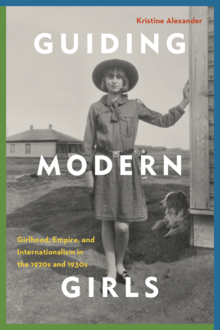
Kristine Alexander is Canada Research Chair in Child and Youth Studies, Associate Professor of History, and Director of the Institute for Child and Youth Studies (I-CYS) at the University of Lethbridge. Her research uses interpretive techniques from across the humanities and social sciences to better understand how young people interacted with global processes and events across the twentieth century. Her book Guiding Modern Girls: Girlhood, Empire, and Internationalism in the 1920s and 1930s (UBC Press 2017) was awarded the Wilson Prize and the Canadian History of Education Association Founders' Prize for Best English-Language Book. Her current projects include edited volumes about young people and war and a global history of youth from the 1920s to the present, as well as monograph (co-authored with Dr. Kristina Llewellyn) about the Model UN movement in Canada.
This talk is jointly-sponsored by the Department of History, HeForShe, and Renison University College. Refreshments and coffee will be served.